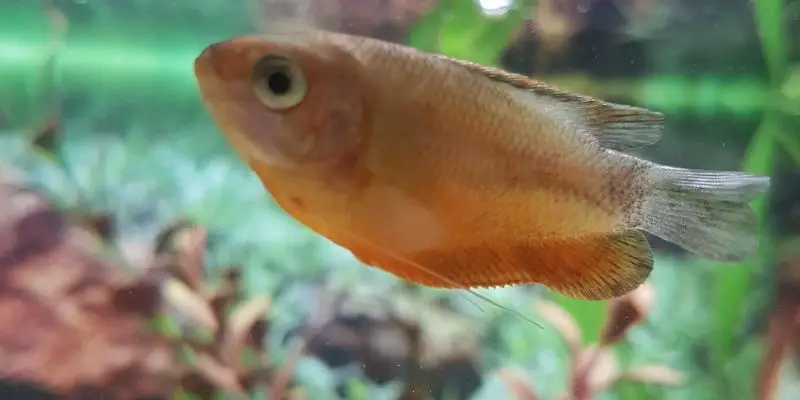Dwarf gouramis are a popular fish for tropical tanks, but are they hard to keep? This guide will give you everything you need to know about dwarf gourami care so you can decide if these fish are the right fit for your tank.
What are Dwarf Gouramis?
Dwarf gouramis are a species of freshwater fish native to Southeast Asia. They are a popular fish for tropical tanks, but they are also known to be unpredictable in temperament. Dwarf gouramis are available in many colors including red, orange, blue, and yellow.
Are Dwarf Gouramis Hard to Keep?
Dwarf gouramis can be a hard fish to keep in an aquarium and it should be regarded as a challenge. Water conditions must be pristine and the fish will only thrive if every aspect of its care is perfect. Dwarf gouramis are prone to disease and illness, so your success with this fish may depend on your ability to provide excellent care.
Are Dwarf Gouramis Suitable for Your Fish Tank?
Dwarf gouramis are not suitable for tanks that are less than 20 gallons. They are active fish that need room to swim, so the tank you house them in should be spacious. Dwarf gouramis can be added with other species of small peaceful fish, but avoid housing dwarf gouramis with aggressive or territorial species.
Do Dwarf Gouramis Need a Heated Tank?
Yes, dwarf gouramis need a heated tank. Aquarium heaters can be used to keep the water between 78 and 82 degrees Fahrenheit. Dwarf gouramis are native to Southeast Asia where temperatures remain stable year round, so their aquarium should mimic this environment as closely as possible for their health and happiness.
Do Dwarf Gouramis Need a Filter?
Yes, dwarf gouramis need a filter that will provide gentle water flow. A canister filter is ideal for the tank because it provides excellent filtration and circulation. However, if you do not have a canister filter, a HOB (hang on back) filter will be suitable. Avoid using a HOB filter with a spray bar because it will create too much water flow for this fish.
Do Dwarf Gouramis Need Substrates?
No, dwarf gouramis do not need substrate in their tank. You can leave the tank bare or you can add driftwood and other decorations that are aquarium safe.
How Do I Set Up a Dwarf Gourami Tank?
Dwarf gouramis need an established tank with cycled water and live plants. The gravel in the bottom of the tank should be dark, because light colored gravel can stress out this fish and lead to illness or disease. You will also need to add aquarium salt to the tank.
Dwarf gouramis are not community fish and should be kept in their own tank. The decor of the tank can include rocks, driftwood, plants, and some open space for swimming.
What Do Dwarf Gouramis Eat?
Dwarf gouramis are omnivores that will need to be fed a varied diet of quality flake, freeze dried and frozen foods. They especially love live brine shrimp and tubifex worms.
Dwarf gouramis can swallow air at the surface of the water which causes them to float vertically in the tank while they eat. This is perfectly normal behavior for this fish.
Dwarf Gourami Disease and Treatment
Before adding dwarf gouramis to your tank, you should quarantine them for two weeks. This will allow you to monitor the fish closely so that you can spot any signs of illness or disease early. Dwarf gouramis are prone to a number of illnesses including fin rot, ich, velvet disease and bloating.
Dwarf gouramis are sometimes victims of bullying from other tank mates. If this occurs, you may need to move the dwarf gourami to a larger tank or find another home for the aggressor fish.
What Is the Lifespan of Dwarf Gouramis?
Dwarf gouramis have a lifespan of four to five years in the wild. In an aquarium, their lifespan is usually shorter, but they can live for more than three years with excellent care. Dwarf gouramis are sensitive to water quality so they should be monitored closely.
If kept in a tank with proper care and attention, the lifespan of your dwarf gourami will be shortened by only a few months. A properly set up and maintained aquarium is healthy for all fish and the stress on the fish from changes to their environment is minimized.


